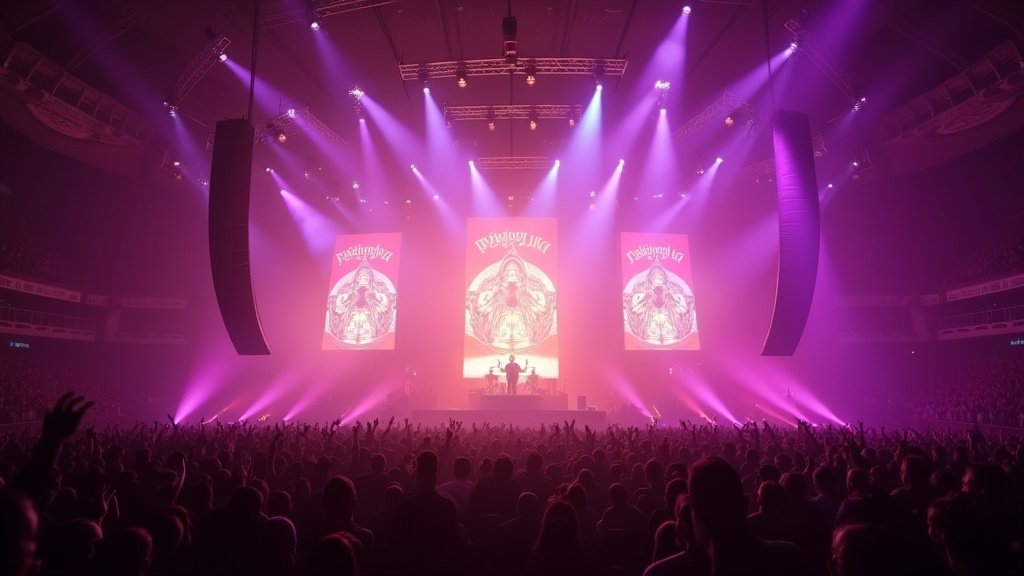In a testament to his burgeoning influence, Cuban urban music sensation Bebeshito has not only ascended the Spotify charts in Miami, placing second only to global titan Bad Bunny, but has also ignited a fervent debate with a bold declaration from his label’s CEO. His rapid rise, punctuated by sold-out concerts and critical acclaim, is now at the heart of a conversation questioning the very definition of a musical legacy. “They said I would never achieve anything,” Bebeshito often remarks, a powerful mantra reflecting his journey from humble beginnings to international recognition.
A New Force in Miami Music
Oniel Ernesto Columbie Campos, widely known as Bebeshito, has become an undeniable force in the Latin urban music landscape, particularly within the vibrant scene of Miami. As of January 2025, reports indicate he commanded 2.84 million streams in the city, a remarkable feat that positioned him directly behind Bad Bunny, who registered 6.11 million streams. This impressive performance underscores his growing popularity across Florida and the wider United States, signifying a significant shift in the streaming dynamics of urban music. His tracks, such as “Tacto Que Llegó El Reparto,” are not only resonating with a massive audience but are also making their mark on Billboard charts, further cementing his status as a prominent new artist.
From Havana to Kaseya Center
Bebeshito’s journey to stardom is a narrative of perseverance and artistic evolution. Born in Havana, Cuba, he initially gained traction by performing covers before finding his unique voice within the “reparto” genre—a distinctive blend of traditional Cuban rhythms and contemporary urban influences. His breakthrough arrived in 2021 with collaborations like “No Me Pongas Pero,” followed by a string of hits including “Una Pila de Partes” (released in 2022), “La Batidora,” and “El Punto.” This innovative sound has resonated deeply, first with Cuban youth and now globally. His growing appeal culminated in a historic performance in 2024, where he successfully filled Miami’s Pitbull Stadium, drawing nearly 20,000 fans—a landmark event for Cuban urban music. Building on this momentum, Bebeshito recently delivered a highly anticipated and reportedly sold-out concert at the prestigious Kaseya Center in Miami on August 9, 2025, a venue with a capacity exceeding 19,000 people.
The ‘Greatest Cuban Artist’ Debate Ignites
The triumph at Kaseya Center set the stage for a swirling controversy, sparked by Roberto Ferrante, the Italian producer and CEO of Planet Records, Bebeshito’s record label. On August 11, Ferrante publicly declared Oniel Bebeshito the “greatest Cuban artist of all time,” boldly stating he surpassed legends like Benny Moré and Celia Cruz. This provocative statement, made via an Instagram post, elicited immediate and widespread backlash across social media. Many critics vehemently condemned Ferrante’s comparison as disrespectful to the indelible legacies of figures like Celia Cruz, who boasts over 6 million monthly listeners on Spotify, significantly more than Bebeshito’s approximately 600,000 monthly listeners at the time. Ferrante, whose Planet Records has offices in Miami and plays a significant role in promoting Latin and particularly Cuban “reparto” music, anticipated the criticism. He asserted his stance was based on his view of Bebeshito as a “visionary and historic artist.” This isn’t Ferrante’s first brush with controversy, as he has previously faced criticism from independent Cuban artists regarding Planet Records’ alleged monopoly in the urban genre.
Bebeshito’s Subtle Response and Broader Implications
Amidst the heated public discourse, Bebeshito himself opted for a subtle yet impactful response: he “liked” Ferrante’s controversial Instagram post. This gesture was widely interpreted as an endorsement of his producer’s bold claim, signaling gratitude and solidarity without directly engaging in the public debate. The incident has not only catapulted Bebeshito further into the news cycle but has also reignited discussions about the evolving landscape of Cuban music, its historical figures, and the commercial realities of the global music industry. His success and the surrounding controversy highlight the increasing impact of Cuban artists on the international urban music scene, particularly in key markets like Miami. Furthermore, Bebeshito’s continued recognition, including being named Billboard’s Rising Latin Artist of the Month for July, underscores his undeniable ascent.
However, the rapid commercial success of Cuban artists in the US and the lack of overt political messaging at some of their concerts has drawn criticism from certain segments of the Cuban exile community in Miami. Political commentators, such as Alex Otaola, have publicly lamented the perceived silence on the struggles faced by people in Cuba, including political prisoners and ongoing humanitarian issues, during these major performances. This adds another layer of complexity to the narrative of Cuban artists finding their footing on the global stage.
A Legacy in the Making
Despite the swirling controversies and critiques, Bebeshito remains focused on his artistic path. His mantra, “They said I would never achieve anything,” serves as a powerful reminder of his journey and determination. He has consistently expressed gratitude for the support from Cubans worldwide, acknowledging their role in his success. As Bebeshito continues to break barriers and carve out his unique space in the music industry, his story embodies the resilience and creative dynamism of Cuban talent. His chart-topping presence in Miami and beyond signifies not just personal triumph but a landmark moment for Cuban urban music, proving its significant and growing influence on the global stage.





